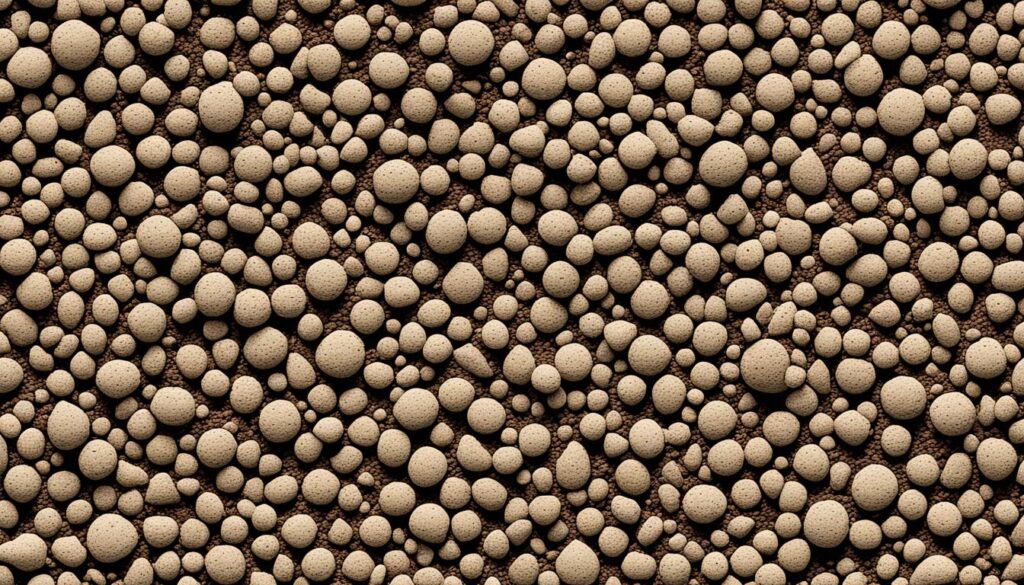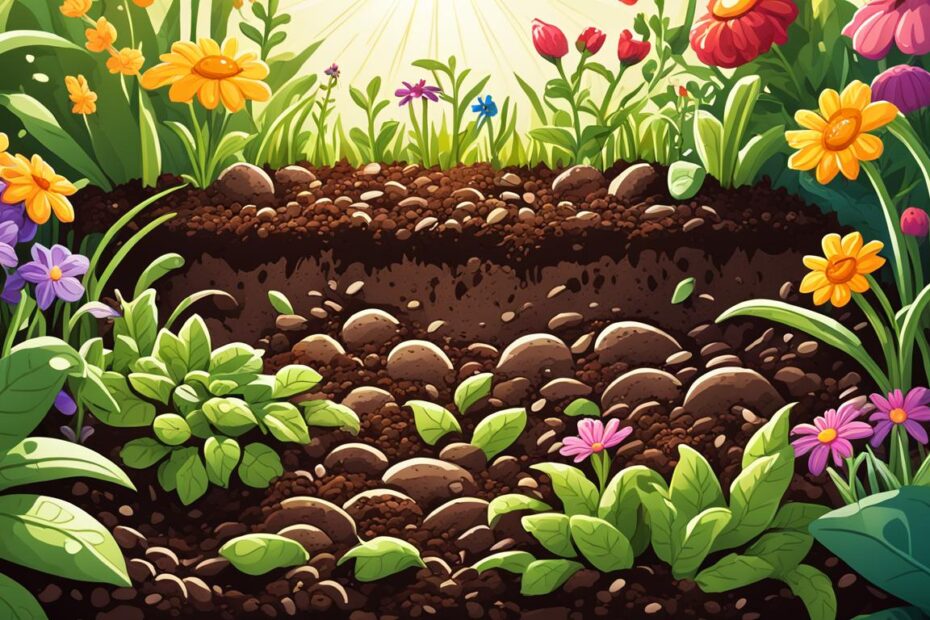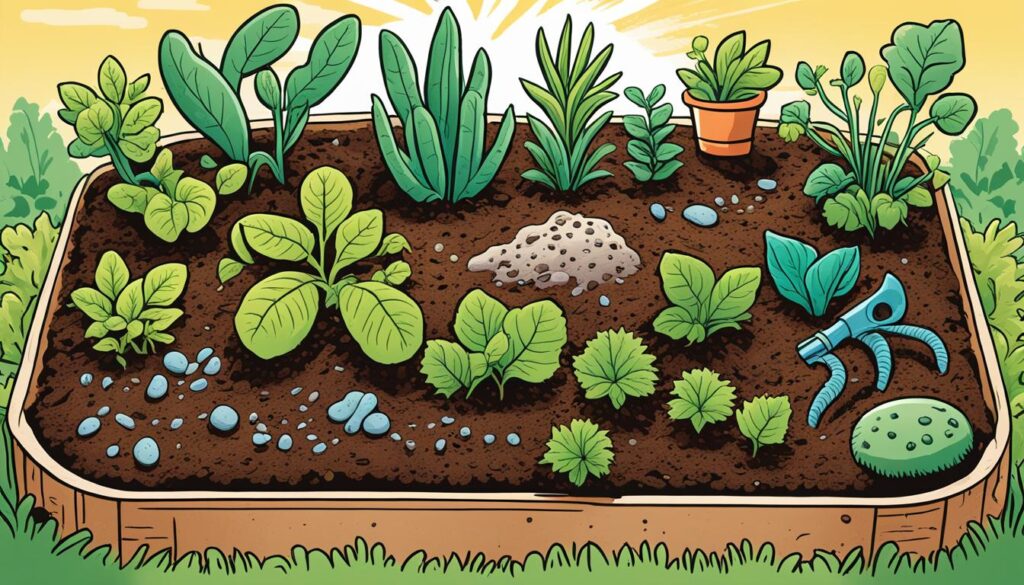Are you struggling to achieve vibrant and thriving plants in your garden? It might be time to take a closer look at your soil. Healthy soil is the foundation for a successful garden, providing your plants with the essential nutrients they need to grow and flourish. But how can you effectively amend your soil and improve its quality? Let’s dive in and discover the secrets to revitalizing your garden through proper soil amendment techniques.
The Basics of Healthy Garden Soil
Healthy garden soil is the foundation for a thriving and productive garden. It provides a nourishing environment for plants to grow, ensuring they receive the essential nutrients and minerals they need. To create healthy garden soil, it’s important to understand its characteristics and how to improve its quality.
First and foremost, healthy garden soil is fertile. This means it contains an abundance of nutrients that plants require for healthy growth. One way to enhance fertility is by incorporating organic matter into the soil. Organic matter, such as shredded leaves, animal manure, and compost, provides a rich source of nutrients for plants. It also improves soil structure, allowing for better drainage and aeration.
In addition to being fertile, healthy garden soil is loose. Loose soil is ideal for root growth as it allows roots to penetrate easily and access water, air, and nutrients. This is vital for the overall health and productivity of plants. To achieve loose soil, it’s important to avoid compaction. Walking on soil when it’s wet or using heavy machinery can lead to compaction, making it difficult for plants to thrive. Regularly tilling the soil and adding organic matter can help maintain a loose soil structure.
Furthermore, healthy garden soil is nutrient-rich. Nutrient-rich soil ensures that plants have access to the necessary elements for growth and development. Organic matter, as mentioned earlier, plays a significant role in nutrient availability. It also supports the growth of beneficial microorganisms within the soil, which further enhances nutrient availability for plants.
Overall, healthy garden soil is the cornerstone of a successful garden. By focusing on fertility, soil structure, and nutrient content, you can create an optimal environment for your plants to flourish.
Benefits of Healthy Garden Soil:
- Improved nutrient availability for plants
- Enhanced root growth and development
- Optimal water drainage and aeration
- Support for beneficial microorganisms
- Increased plant productivity and yield
Creating and maintaining healthy garden soil requires ongoing care. In the next section, we will explore seven effective ways to improve the quality of your garden soil and ensure its long-term health and productivity.
CLICK HERE TO CHECK OUR RECOMMENDED PRODUCTS7 Ways to Improve Garden Soil
Your garden soil plays a vital role in the overall health and productivity of your plants. By implementing these 7 effective methods, you can improve garden soil and ensure its health and fertility.
Add Organic Matter with Compost
A key way to improve garden soil is by adding organic matter such as compost. Compost feeds the soil, providing essential nutrients for plant growth. It also improves soil structure, promoting good drainage and ensuring proper aeration. Adding compost to your garden beds enriches the soil and supports the long-term health of your plants.
Conduct a Soil Test
Before amending your soil, it’s beneficial to conduct a soil test. This test provides insights into nutrient deficiencies, pH levels, and other factors that affect plant health. By understanding your soil’s specific needs, you can tailor your amendments accordingly, ensuring efficient use of organic matter and improving overall soil quality.
Mulch for Moisture and Organic Matter
Mulching the soil surface offers multiple benefits for garden soil improvement. It helps retain moisture, reducing water loss through evaporation. Mulching also controls weeds, preventing competition for nutrients and sunlight. Additionally, organic mulch breaks down over time, enriching the soil with essential organic matter.
Avoid Soil Compaction and Rotate Crops
Soil compaction hinders root growth and restricts the flow of water and nutrients. To improve garden soil, avoid walking on it when wet or unnecessary and use designated pathways. Rotating crops annually prevents the depletion of specific nutrients in the soil, while also reducing the risk of plant diseases and pest infestations.
Create Healthy Soil with Cover Crops
Growing cover crops is a fantastic way to improve garden soil for future planting. Cover crops, like legumes and grasses, add organic matter to the soil when they are turned under. They also help suppress weeds, control erosion, and fix nitrogen. Cover crops play a vital role in building long-term soil fertility.
Enhance Soil Fertility with Aged Animal Manure
The addition of aged animal manure can significantly improve garden soil fertility. It supplies organic matter, nutrients, and beneficial microbes that promote plant growth. Before applying animal manure, ensure it has undergone proper composting or aging to eliminate any potential risks.
Foster Biodiversity and Ecosystem
Creating a diverse ecosystem in your garden enhances soil health. Encourage beneficial insects, earthworms, and other soil-dwelling organisms by providing a variety of plant species and habitats. Diverse ecosystems enrich the soil through nutrient cycling and contribute to overall garden resilience.
By incorporating these 7 methods to improve garden soil, you can create an optimal environment for your plants to thrive. Whether it’s adding compost, conducting soil tests, mulching, preventing compaction, growing cover crops, adding aged animal manure, or fostering biodiversity, each step contributes to the overall health and fertility of your garden soil.
| Methods | Benefits |
|---|---|
| Add Organic Matter with Compost | – Provides essential nutrients – Improves soil structure – Enhances drainage and aeration |
| Conduct a Soil Test | – Identifies nutrient deficiencies – Guides organic amendments |
| Mulch for Moisture and Organic Matter | – Retains moisture – Controls weeds – Adds organic matter |
| Avoid Soil Compaction and Rotate Crops | – Prevents compaction – Promotes root growth – Nutrient management |
| Create Healthy Soil with Cover Crops | – Adds organic matter – Suppresses weeds – Fixes nitrogen |
| Enhance Soil Fertility with Aged Animal Manure | – Supplies organic matter and nutrients – Promotes beneficial microbes |
| Foster Biodiversity and Ecosystem | – Enhances nutrient cycling – Supports beneficial organisms |
Understanding Soil Texture and pH
Soil texture and pH are two important factors to consider when it comes to maintaining a healthy and thriving garden. By understanding the different soil textures and pH levels, you can make informed decisions about which plants are most suitable for your garden and how to effectively amend the soil.
Soil Texture
The texture of soil refers to the size of the particles that make up the soil. There are three main types of soil textures: sandy soil, clay soil, and silty soil.
| Soil Texture | Characteristics |
|---|---|
| Sandy Soil | Drains quickly |
| Clay Soil | Retains moisture and can become easily compacted |
| Silty Soil | Offers a balance between sandy and clay soils |
Understanding your soil texture is essential because it affects water retention and drainage. Sandy soil drains quickly, which can result in the loss of nutrients, while clay soil retains moisture and can become easily compacted. Silty soil offers a balance between the two and provides good drainage while retaining sufficient moisture.
Soil pH
Soil pH is a measure of how acidic or alkaline the soil is on a scale of 0 to 14. Most plants prefer slightly acidic soil with a pH range of 6 to 7, but certain plants have specific pH requirements. For example, blueberries thrive in more acidic soil with a pH range of 4.5 to 5.5.
Testing soil pH is important because it helps you understand the current acidity or alkalinity of your soil. Based on the pH test results, you can determine if any amendments, such as lime to raise pH or sulfur to lower pH, are needed to achieve the optimal pH level for your desired plants.

In summary, understanding soil texture and pH is crucial for maintaining a healthy garden. By selecting plants that are well-suited to your soil texture and amending the pH level if necessary, you can create an optimal environment for your plants to thrive.
CLICK HERE TO CHECK OUR RECOMMENDED PRODUCTSConclusion
Maintaining healthy garden soil is crucial for the success of your garden. By implementing proven soil amendment tips and incorporating organic matter, you can improve the fertility, structure, and overall health of your soil.
One of the most effective ways to amend soil is by adding compost. This organic matter not only provides essential nutrients for your plants but also enhances soil structure, promotes drainage, and encourages beneficial microorganisms. Conducting regular soil tests will help you identify any nutrient deficiencies and guide you in using appropriate organic amendments.
In addition to adding compost, mulching your garden soil is essential for retaining moisture, controlling weeds, and adding more organic matter. Preventing soil compaction by avoiding walking on it and rotating crops annually will ensure the health of your soil. Growing cover crops and incorporating aged animal manure are other effective methods to enhance soil fertility and strengthen the soil ecosystem.
Remember that maintaining healthy garden soil is an ongoing process, and nurturing it regularly will lead to vibrant and productive plants. With the right soil amendment techniques and a consistent focus on organic matter, you can create a thriving environment for your garden to flourish.
FAQ
Why is healthy soil important for a garden?
Healthy soil is essential for productive and thriving gardens. It provides essential nutrients and minerals, supports root growth, and allows plants to access water, air, and nutrients easily.
What is organic matter, and why is it important for healthy soil?
Organic matter, such as compost, shredded leaves, and animal manure, plays a vital role in providing nutrients to plants, improving soil structure, and promoting drainage and aeration.
How can I improve my garden soil?
You can improve garden soil by adding compost, conducting soil tests, mulching, preventing compaction, rotating crops, growing cover crops, and incorporating aged animal manure.
What should I consider in terms of soil texture and pH?
Soil texture affects water retention and drainage, with sandy soil draining quickly and clay soil retaining moisture. It’s also important to consider soil pH, as most plants prefer slightly acidic soil. Testing soil pH can guide the use of amendments like lime or sulfur to adjust acidity or alkalinity.
How can I maintain healthy garden soil?
Regularly replenishing organic matter, conducting soil tests, preventing compaction, and nurturing the soil’s ecosystem through practices like mulching, crop rotation, growing cover crops, and adding aged animal manure can help maintain healthy garden soil.

